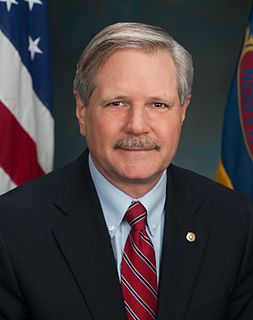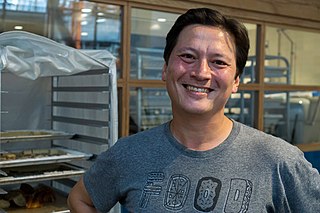A Quote by Barbara Kingsolver
If every U.S. citizen ate just one meal a week (any meal) composed of locally and organically raised meats and produce, we would reduce our country’s oil consumption by over 1.1 million barrels of oil every week. That's not gallons, but barrels. Small changes in buying habits can make big differences. Becoming a less energy-dependent nation may just need to start with a good breakfast.
Quote Topics
Any
Ate
Barrels
Becoming
Big
Big Difference
Breakfast
Buying
Changes
Citizen
Composed
Consumption
Country
Dependent
Differences
Energy
Every
Gallons
Good
Habits
Just
Just One
Less
Locally
Make
May
Meal
Million
Nation
Need
Oil
Oil Consumption
Organically
Our
Our Country
Over
Produce
Raised
Reduce
Small
Small Changes
Start
Week
Would
Related Quotes
About 75% of the price of gas is really dictated by crude oil. At the heart of the issue is increasing demand over a period of many years around the world. World crude oil consumption now is close to 90 million barrels a day. Most of the growth in demand is coming from China and the developing world.
Our oil-based society depends on non-renewable resources. It requires relentless probing into vast reaches of pristine land, sacrificing vital bioregions, and irreplaceable cultures. The possibility of catastrophic climate change is substantially increased by the 40 million barrels of oil burned every day by vehicles. We must all move shoulder to shoulder in a unified front to show this administration that the true majority of people are willing to vote for a cleaner environment and won't back down.
I think in the end, you know, we're just addicted to oil. We've got to overcome that addiction, and we need some serious accountability of big oil, because big oil, like so much of big businesses, has just colonized our government, colonized the regulatory agencies so we can't impose any kind of accountability on them.
I take my daughter to the San Mateo farmers market every Saturday morning, and despite repeated advice to the contrary, I usually do it on an empty stomach. Bad mistake. I wind up buying far more produce than our small family can eat within a week, which means I'm constantly trying to figure out ways to pack more vegetables into a single meal.
All of the easy oil is gone and what's left is requiring more energy and money and this has an effect on everything. Our problem is that we've created an infrastructure that's so dependent on oil. As oil becomes more expensive we're going to be locked into the transportation modes that our economy depends on. So we really need to start building an alternative economy before we get caught in a trap of our own making.







































